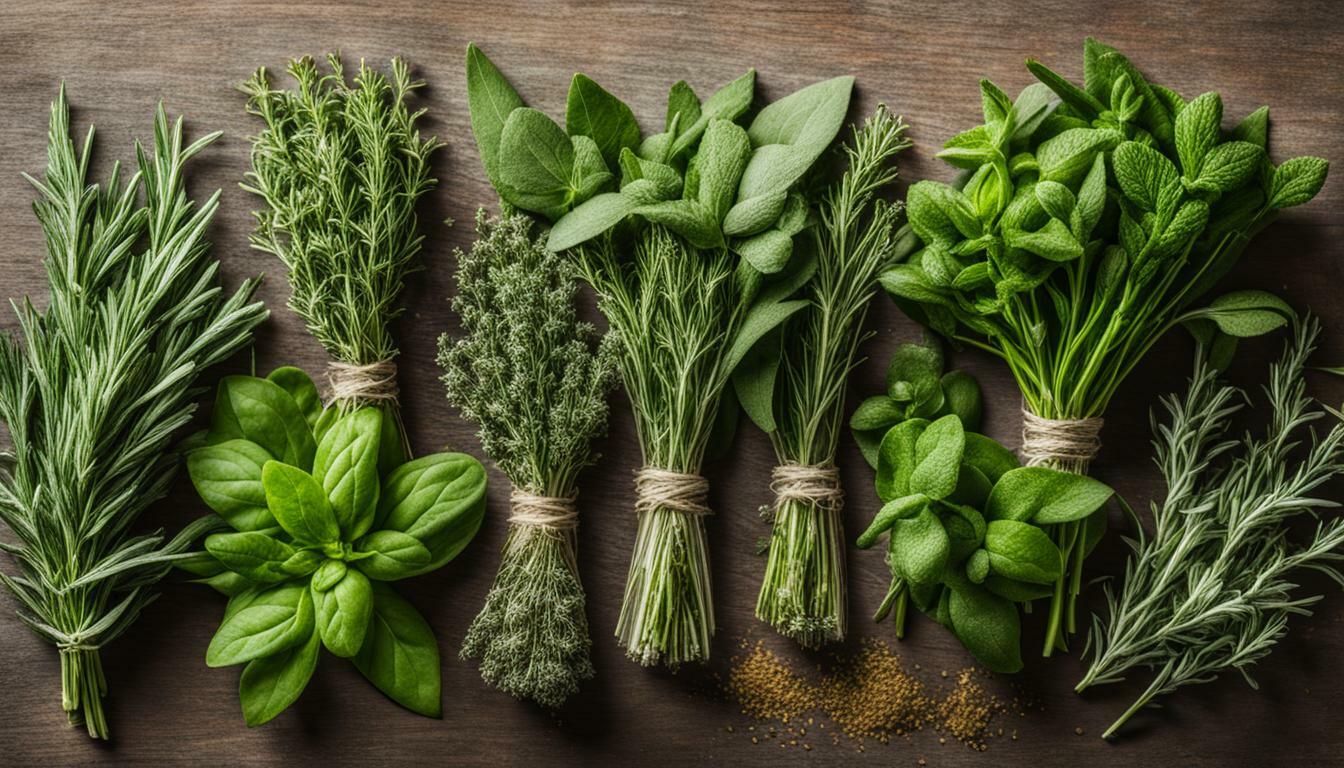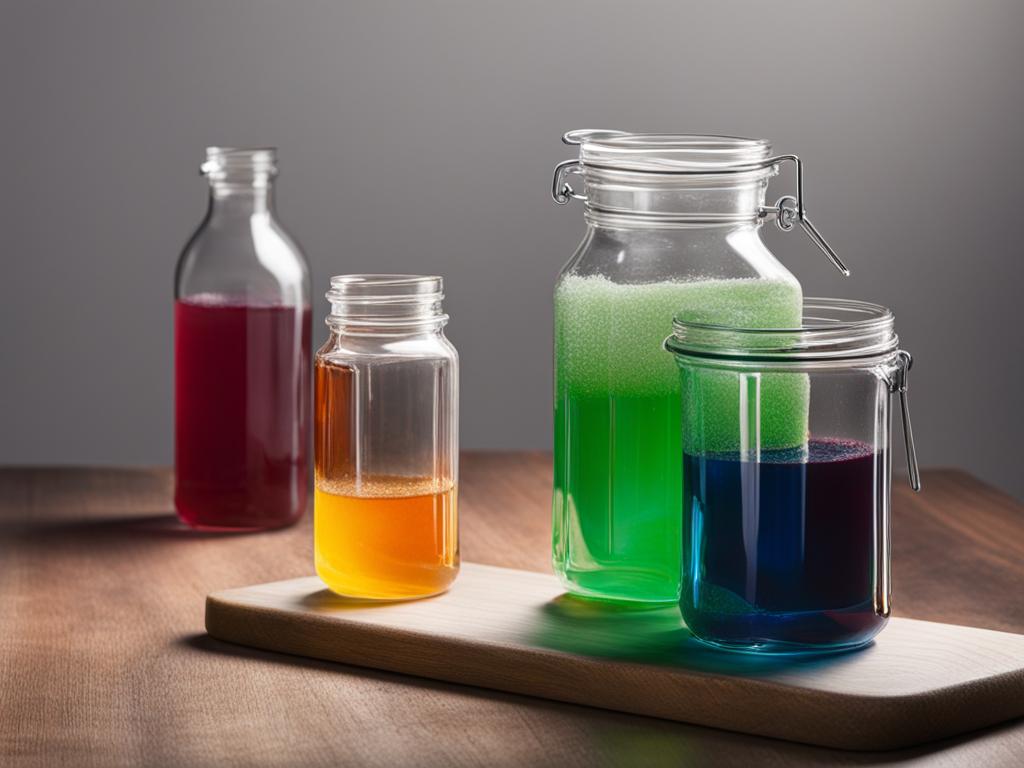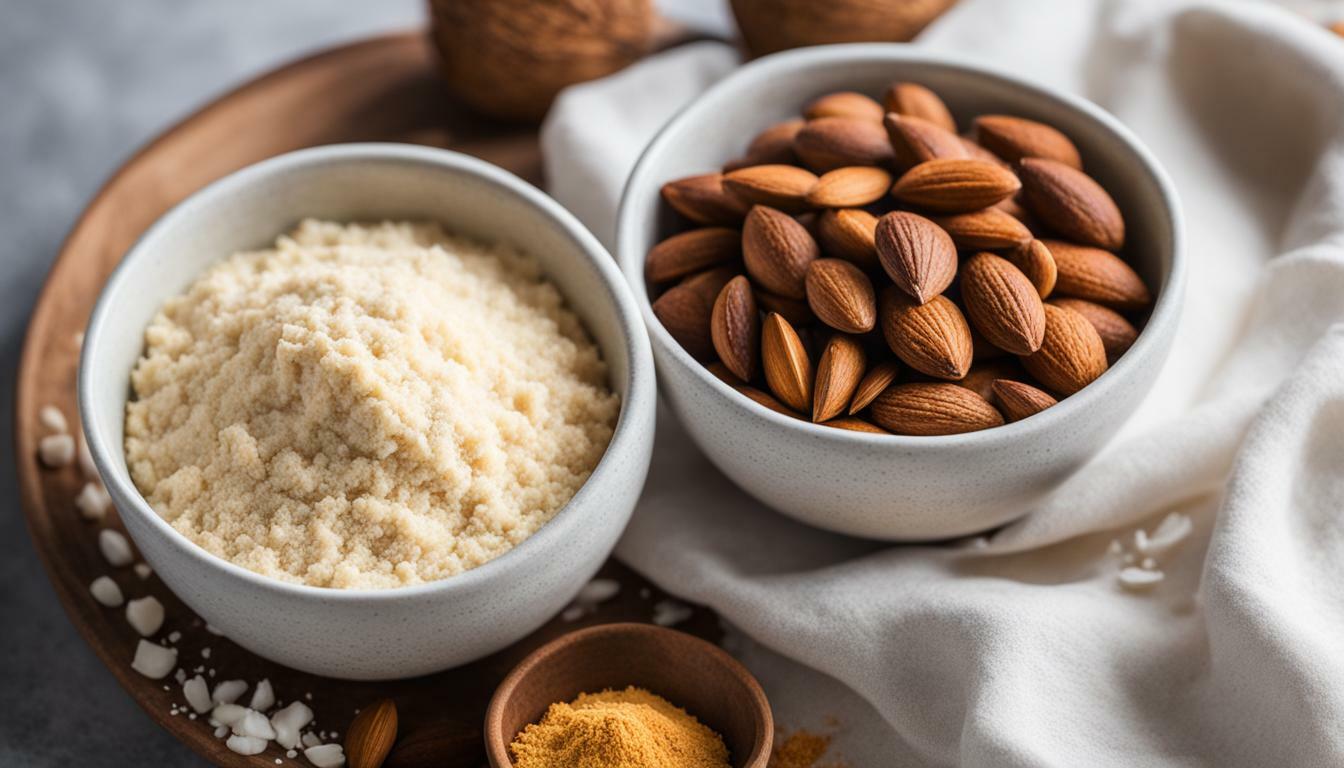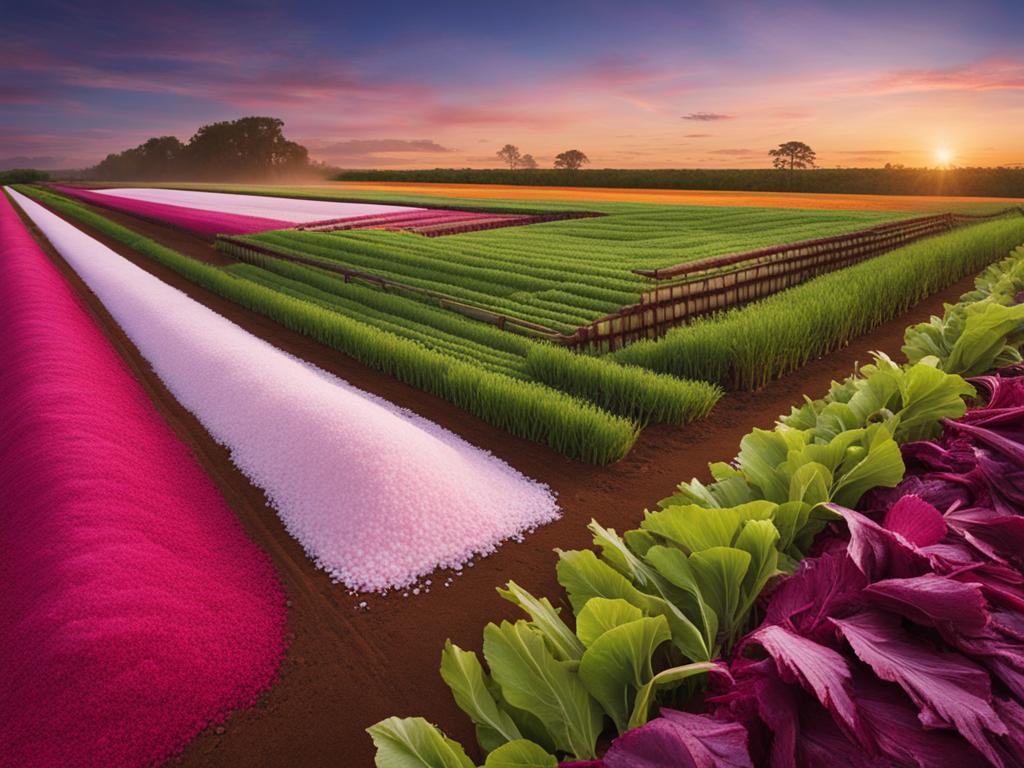Herbs are an essential component of many dishes, offering a range of flavors and aromas that enhance the overall taste experience. However, when it comes to selecting herbs, you may be unsure whether to choose fresh or dried. Understanding the differences between fresh and dried herbs will help you choose the best type for your particular culinary application.
Fresh herbs, as the name suggests, are harvested straight from the plant and have a higher water content. On the other hand, dried herbs are dehydrated and have a more concentrated flavor. These distinctions can significantly impact the outcome of your dish, so it’s crucial to know when to use each type.
Key Takeaways
- Understanding the difference between fresh and dried herbs is crucial for cooking.
- Fresh herbs have a higher water content, while dried herbs are more concentrated in flavor.
- Choosing the right type of herb for your culinary application is essential for achieving the desired taste and aroma.
Benefits of Fresh Herbs
When it comes to cooking, fresh herbs are a game-changer. They are an easy and affordable way to add flavor and depth to your dishes, and they offer several benefits that can make a significant difference in your cooking.
One of the main advantages of using fresh herbs in your recipes is their intense flavor. Unlike dried herbs, which lose their potency over time, fresh herbs are bursting with flavor, creating a more vibrant and aromatic taste in your dishes.
Cooking with fresh herbs is also an excellent way to add nutrients to your meals. Most fresh herbs contain vitamins and minerals that can help boost your immune system and provide other health benefits.
Another benefit of using fresh herbs in your cooking is their versatility. From basil and cilantro to thyme and rosemary, there are dozens of herbs to choose from, each with its unique flavor profile that can transform your meals.
Using fresh herbs in your recipes is easy and requires minimal preparation. Simply chop or tear the herbs and add them to your dishes at the end of cooking or use them as a garnish.
Overall, cooking with fresh herbs is an excellent way to elevate your dishes, infusing them with bold flavors and nutrients while adding an attractive visual element to your meals.
Benefits of Dried Herbs
Dried herbs offer several benefits for culinary enthusiasts. One of the key advantages is their long shelf life, allowing you to keep them on hand for extended periods. Unlike fresh herbs, dried herbs are concentrated, and a little goes a long way in terms of flavor. Adding dried herbs to soups, stews, marinades, and other recipes can significantly enhance their taste profile without adding bulk or weight to the dish.
Cooking with dried herbs is easy and convenient. They do not require preparation or washing, as fresh herbs do, and they retain their flavors even after heating or baking. You can add dried herbs directly to your recipe or rehydrate them by soaking them in liquid for a few minutes before use. Adjusting the quantity of dried herbs in your recipes is also relatively straightforward, as you can add more or less based on your personal preferences.
How to Choose Fresh Herbs
If you are looking to add fresh herbs to your cooking, it is important to choose the best quality herbs available. Here are some tips to help you select the freshest herbs:
| Herb Type | Selection Tips |
|---|---|
| Basil | Look for bright green leaves and avoid any with brown spots or yellowing. |
| Cilantro | Choose plants with firm, green leaves and avoid those with wilting or yellowing stems. |
| Mint | Select bunches with fresh, bright green leaves and avoid any with brown or yellow spots. |
| Parsley | Look for deeply colored, crisp stems and avoid any with slimy leaves. |
| Thyme | Choose plants with strong, aromatic leaves and avoid those with discoloration or browning. |
When selecting herbs, use your senses to gauge their freshness. The herbs should have a strong, pleasant aroma and firm, vibrant leaves. Avoid any that appear wilted or bruised, as this is a sign that they are past their prime.
When purchasing pre-packaged herbs, check the expiry date and look for signs of freshness, such as tightly sealed packaging.
By following these simple tips, you can enjoy the full flavor and aroma of fresh herbs in your cooking.
How to Store Dried Herbs
Dried herbs can last for several years when stored properly. Here are some tips on how to store dried herbs to ensure they retain their quality:
| Storage Method | Pros | Cons |
|---|---|---|
| Airtight containers | Retain potency and flavor; protect from light | Can be expensive; need to be replaced periodically |
| Herb grinders | Grind dried herbs as needed for optimum freshness | Can be time-consuming; can be expensive |
| Cool, dark places | Protect from light and humidity | May not retain flavor and potency as well as airtight containers |
When storing dried herbs, it is important to label the container with the name of the herb and the date it was stored. This will help you keep track of how long each herb has been stored and when it may be time to replace it.
Remember, heat and moisture are the enemies of dried herbs, so avoid storing them near the stove or in the refrigerator. Instead, keep them in a cool, dry place away from direct sunlight.
By following these simple guidelines, you can ensure that your dried herbs remain fresh and potent for use in all your favorite recipes.
Cooking with Fresh Herbs
Using fresh herbs in your cooking can take your dish from ordinary to extraordinary. Here are some tips to ensure you get the most out of your fresh herbs:
- Wash your herbs thoroughly before use to remove any dirt or debris.
- Remove any tough stems, as they can be bitter and difficult to chew.
- Chop the herbs finely to release their flavors.
- Add fresh herbs towards the end of cooking to preserve their delicate flavors.
- Use fresh herbs in sauces, marinades, dressings, and salads.
Experiment with different herbs to find your favorite flavor combinations. Some popular herbs to cook with include:
| Herb | Flavor Profile |
|---|---|
| Basil | Sweet, slightly peppery |
| Cilantro | Fresh, citrusy |
| Mint | Cool, refreshing |
| Parsley | Grassy, slightly bitter |
| Thyme | Earthy, slightly minty |
Using fresh herbs can bring new dimensions of flavor to your cooking. Don’t be afraid to experiment and have fun in the kitchen!
Cooking with Dried Herbs
Cooking with dried herbs is an easy and convenient way to add flavor to your dishes. While they may not have the same fresh taste as their counterparts, dried herbs offer a concentrated flavor and aroma that can take your cooking to the next level.
Here are some tips for cooking with dried herbs:
- When using dried herbs in a recipe that calls for fresh, remember to adjust the amount. A good rule of thumb is to use 1/3 of the amount of dried herbs compared to fresh.
- Before adding dried herbs to a recipe, crush them in your hand or with a mortar and pestle. This releases their oils and enhances their flavor.
- If a recipe calls for dried herbs and you only have fresh, you can use them as a substitute. Use three times the amount of fresh herbs compared to dried.
- To rehydrate dried herbs, you can soak them in a small bowl of water for about 10 minutes before adding them to your recipe. Alternatively, you can simply add the dried herbs directly to your dish, and they will rehydrate during cooking.
Some popular dried herbs to consider using in your cooking include:
| Herb | Best Used In |
|---|---|
| Basil | Pasta sauce, pizza, soups and stews |
| Thyme | Roasted meats, soups, stews, and vegetables |
| Oregano | Pizza, tomato sauce, and marinades |
| Rosemary | Roasted meats, potatoes, and bread |
| Sage | Pork, stuffing, and biscuits |
Now that you know how to work with dried herbs, experiment with different combinations to create unique and flavorful dishes.
Conclusion
In summary, it is important to understand the difference between fresh and dried herbs and when to use each in your culinary creations. Fresh herbs offer a vibrant and intense flavor, perfect for adding a subtle touch to your dish. Dried herbs, on the other hand, provide a more concentrated taste and are great for dishes that require a longer cooking time.
While both types of herbs have their own unique benefits, it’s crucial to use the right one for the right recipe. When cooking with fresh herbs, it’s essential to choose the freshest ones possible to ensure maximum flavor. Properly storing dried herbs will also maintain their potency and flavor for extended periods.
Whether you choose to cook with fresh or dried herbs, remember to experiment and have fun in the kitchen. Incorporating herbs into your cooking adds a layer of complexity and depth to your dishes that cannot be achieved with just salt and pepper. So, next time you’re cooking up a storm, remember the difference between fresh and dried herbs and enjoy the benefits they can bring to your plate.



